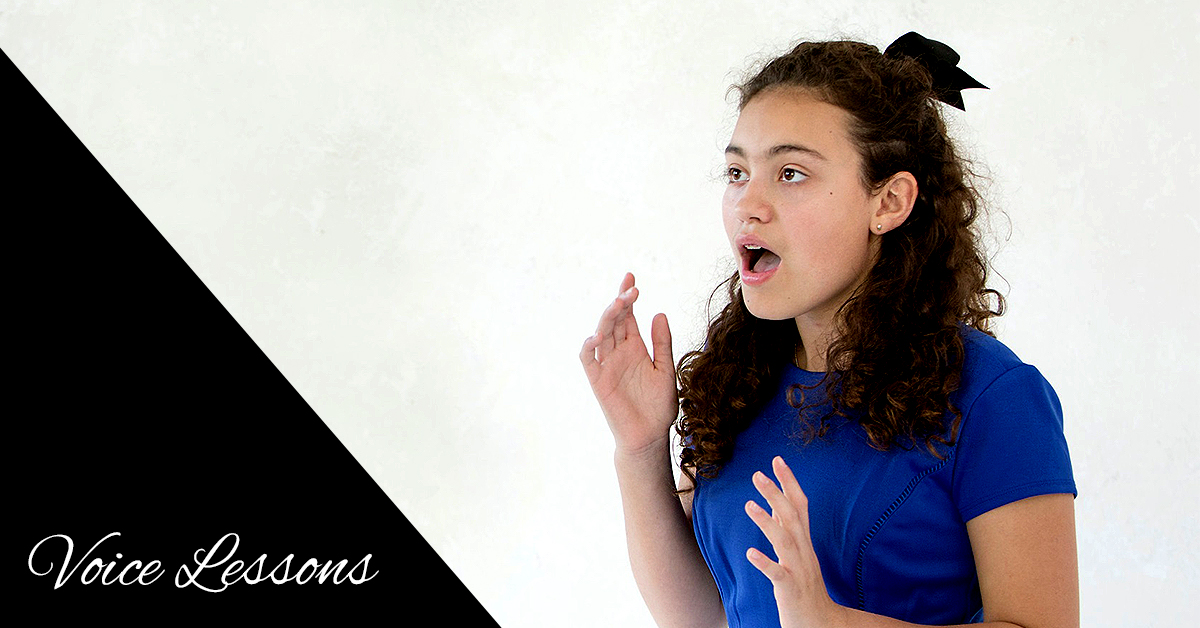Young children (ages 5 through 13) can benefit greatly from private voice lessons. Vocal instruction for children in this age group is structured much differently than for a teenager or adult. Their young voices and developing physique as well as their emotional and intellectual maturity must be taken into consideration during each lesson. Our teachers will customize the lesson plans specifically to the child’s age, personality, and goals.
What the Student Can Expect
First and foremost, the student will have fun and work hard. Progress does not happen quickly and does not happen without effort. Discovering the individuality of the student’s voice and learning how to use it properly, rather than the goal of an instant “perfect” voice, is the objective of each lesson.
The student will not be pushed to develop a more “mature” sound too quickly and will not be forced to sing a certain style of music, whether that be pop, musical theater, jazz, or opera. The natural voice will be preserved, nurtured, and developed at a pace that is appropriate for the student. Many children will want to emulate the sound of their favorite vocalist or even that of their teacher; however it is important that the child maintain an age appropriate sound and refrain from imitative singing. The vocal health of every voice student is paramount.
What the Teacher Expects
While we are passionate about teaching young children the joy of singing, we have a standard for acceptable behavior. Students must behave maturely, understand and take direction, and be willing to put forth one hundred percent effort at every lesson and practice session. Failure to uphold these standards during the lesson and during practice at home may result in the termination of lessons.
The Myths Behind the Young Voice
As mentioned previously, a child’s voice must be treated differently than that of a teenager or adult. Many voice instructors will not teach a student younger than 13 simply because they have no experience doing it. A child’s voice is constantly growing and changing, and the teacher must develop her teaching style to accommodate this. Once this happens, the child can flourish in a private lesson setting. The chance for children to explore their own voice and the music that can be expressed is a valuable experience that can produce joy, confidence, and freedom in a child’s life.
The concern that the small vocal muscles of young children are too fragile for serious private voice lessons is a prevalent outdated myth. Of course children must not be taught as if training for an adult performance such as an opera or rock concert. However, children are quite capable of learning the foundations of good singing such as good posture and breathing. The instruction is gentle with a focus on how each vocal exercise feels physically. It must be understood that the teacher is dealing with muscles and bones that are still developing, and sometimes, at varying rates. Overuse and over-singing is never healthy, whether for an adult student or a child. Again, patience and foresight must be exercised so that a balance can be struck between consistent progress and burdensome, potentially harmful, work.
Parental Involvement
It is crucial for parents to be involved in their child’s practice time at home. Young children often need constant reminders and guidance to fulfill the expectations set during their lessons. Parental involvement helps the child to follow the rules given by the teacher and to maximize efficiency during practice at home. This system ensures that the child is practicing correctly, and helps the child become motivated in learning about the voice.
Students are required to bring a notebook to every lesson so that notes can be taken on appropriate breathing, posture, and singing technique. These notes will help the student to re-create what they have learned in their lessons during their practice at home. Parents are required to sit in on lessons and supervise their child’s practice at home. Exceptions to this requirement may be made at the sole discretion of the teacher.
Parent/Teacher Interaction
During the Lesson
It is very important that the parent does not correct the child during the lesson, or answer questions directed to the child. The parent is welcome to address the instructor with questions, but should refrain from interacting with the student or teacher in any manner that undermines the teacher’s authority or in any other way detracts from the lesson.
Outside the Lesson
Parents should feel free to communicate with the instructor between lessons regarding any issues that concern them. It is better to solve problems immediately rather than waiting for the next lesson.







